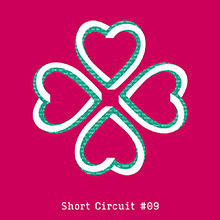What can you do
When your mother states
"You're on the shelf,
Past your sell-by-date"?
...
[+]
"What do I have to be scared about?" he says. "We're locked in our rooms."
He's always been tough like that, stoic, but I wish I could see his face, hug him. I know from weekly reports the nurse sends me that he's thin, frail. But he still gets up every day, does his morning exercises, makes himself breakfast.
The last time I saw him, Julie and I helped him moved into this retirement home, thinking he‘d be safer here. I was about to visit him this spring when the virus struck.
"I wish we could Zoom," I say. Dad‘s computer doesn‘t have a camera, and he says no one at the home has time to set one up. He has a simple flip phone, so Facetime is also out.
"I don't need to Zoom," Dad says and chuckles.
I can't help but think he's being critical of my fast-paced life, my love of technology.
"You don't get out at all," I say.
"I open the window," he says. "Sometimes I go on the balcony, late at night if it's not too hot."
He's in Florida—Tampa—so I suppose there's not much allure to being outside in August. I'm in New York, and the distance between our two places seems unfathomable, though the whole family would drive down there when I was young—Dad in one car, alone, with a gallon jug of water and an empty jug I only later learned the use of. He loved to drive, going as fast as he could without getting caught, only stopping for gas.
My Mom, younger sister and I would drive down in the camper, leaving the day before and spending a night in a campground in North Carolina—unless Mom splurged on a hotel so we could have a pool, TV, and air conditioning.
When Dad caught up with us, we'd talk on a CB he installed in the camper, though we had trouble finding a channel we could communicate on without upsetting truckers. I remember his voice—dislocated and static—coming through the plastic speaker, sounding like him and not him.
Just like now. Ever since Mom passed away and he moved to Florida, his voice has become less and less like the one I remember.
"You still there, Jody?" Dad asks, and I realize I haven't responded to him.
"I'm here," I say, but here seems far away. "I'm glad you get out a little at least."
"Don't worry about me," he says. "I'm having a great time. Meals brought to my door, cable TV. It's like living in a hotel."
I laugh. Dad never let us stay in hotels when we traveled. I used to think they were the epitome of the leisurely life, until I lived in them while at conventions and conferences.
"Oh, and guess what?" Dad says, a boyish excitement in his voice.
"What?"
"I'm on TV."
"What?"
"You can look it up. They did a newscast about Copley Manor. You know, all the infections."
"You're not infected, are you, Dad?"
"No no, they were interviewing a couple of us healthy ones. How we felt, what life in quarantine was like."
He goes on to say he told them that life was no different than before the virus—too hot to be outside, no one visiting him, the same food. The only difference is now it comes to his door. "Room service without paying the tip," he says, laughing.
But I barely hear him. I'm angry, furious. I picture his face near a microphone that some other resident has just spoken into, the reporter and cameraman hovering over him, shouting so he could hear them.
"What were you thinking, Dad?" I say. "Letting strangers into your room."
"No no," he says, "it was outside."
"But you're in lockdown."
"Well, sure, but this was TV, and we wore masks as we went through the building."
"You took the elevator?"
"Of course I took the elevator. You know I can't do stairs. But then we were outside."
"Did the reporter wear a mask?"
"Probably," he says. "I don't really remember. The point is, I was on TV. You can see it on Channel Five, Tampa. Someone told me it's still online."
I quickly search for the video and play it quietly, looking for breaches of protocol. There's a resident worker in the background, wearing a mask but sneezing. Behind her a squirrel runs up a tree, frightened by the sound.
The reporter, a tall, dark-haired woman, wears a mask, but speaks into the microphone then points it toward Dad.
Infection, I think.
And there's my dad, no mask, smiling, talking on and on about the charmed life, how it's like living in a castle during the plague.
Except the plague is in your castle, I think.
"What do you think?" Dad says.
"I think it was dangerous and irresponsible for the home to allow that."
"Oh, Jody," he says. "Relax a little. It was a great day for me. You could just enjoy for a minute, your father on TV. Julie said she loved it, was so happy to see me live."
I want to be angry at Julie, but I refuse to fall into that trap, Dad pitting us against one another, the cheerful Julie, the anxious me.
Instead, I realize something else is bothering me—not Julie's reaction, not Dad's safety. It's that he let strangers meet him face to face—he's let a person I don't even know see him, when all I can do is hear his voice. It's not what the virus might do if he catches it, it's what it's already done. By four of my five senses, he's already gone.
"You still there?" he asks again, though now even the sound of his voice seems remote and full of static, like it's coming over the radio from a passing car.

